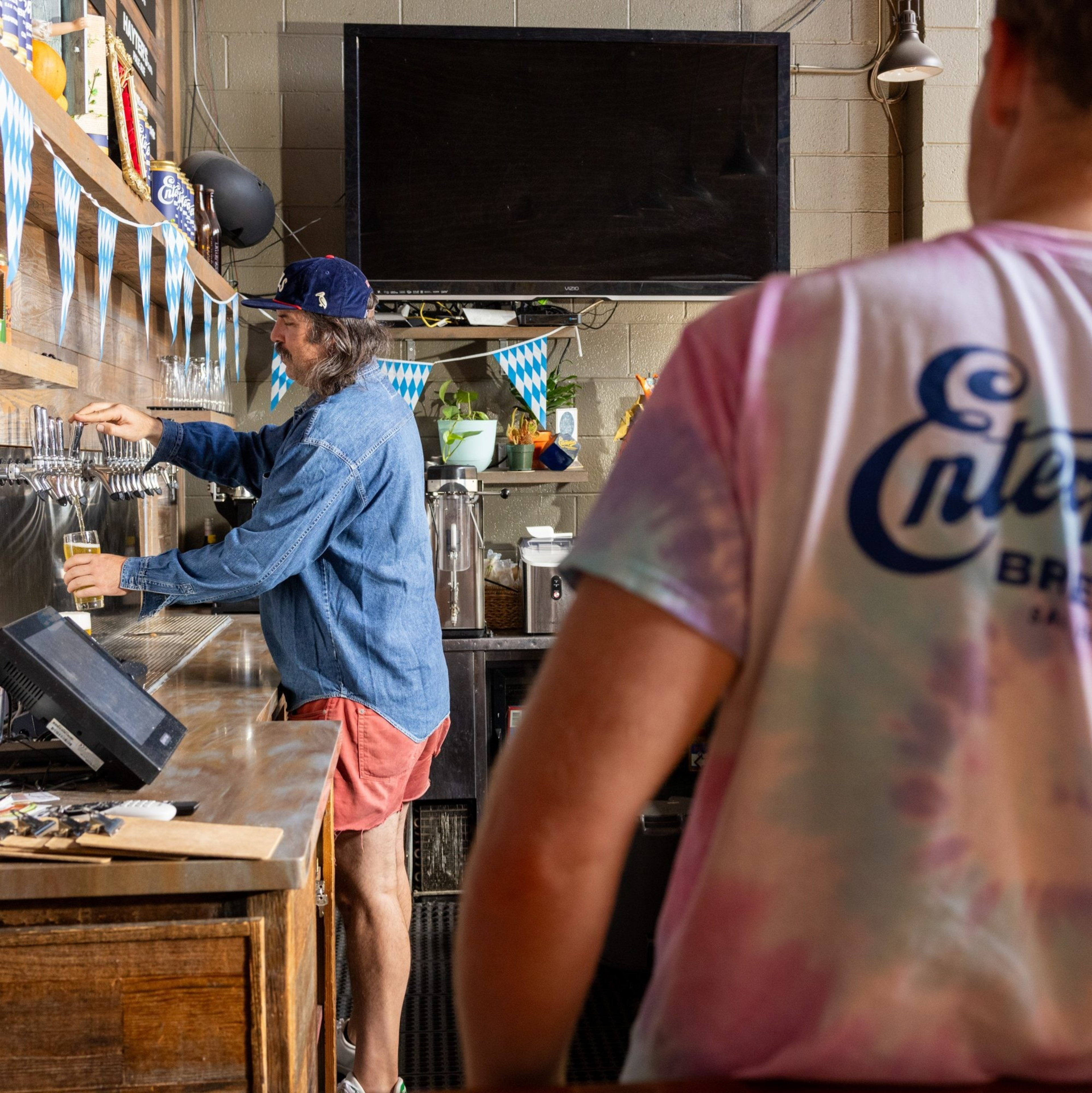Welcome to Swig City, highlighting can’t-miss cocktails at the best bars, restaurants and clubs in the city.
Jesse Hayter and Cameron McDonald, founders of Enterprise Brewing Co., harbor a mutual distaste for a very popular style of beer: the hoppy, hazy India pale ale.
“I wanted to open with zero IPAs,” McDonald, the brewmaster, said of the SoMa taproom. “But I didn’t follow through on that threat. So we have one hazy on the board.”
Hayter’s antipathy to those opaque, extra-juicy beers — whose tropical-cannabis flavor profile dominates San Francisco bar menus — runs even stronger. “I quit drinking IPAs a long time ago. There’s no good one to me.”


Such a stance seems downright provocative, especially as that one hazy IPA is a favorite in the taproom. But Enterprise, which celebrated its first anniversary over the summer, doesn’t appear to be suffering. On the contrary, it has become San Francisco’s beer of the moment, showing up — always draft, never canned — at bars and restaurants around the city, including the House of Shields in SoMa, Comstock Saloon in North Beach, Rudi’s Sports Bar in the Mission, Madrone Art Bar on Divisadero Street, seafood restaurant Bearing West in the Sunset, and the Halfway Club in Crocker-Amazon.
“We’re grinding — in a good way,” McDonald said. “I’m making beer, and Jesse is selling it.”
Just not so much with the IPAs. It turns out the brewery’s best-seller is the less-flashy Pilsner, which is both the style and the name. McDonald — a certified cicerone, the sommeliers of the beer world — said the formula took almost no tinkering. “I had this recipe for 10 years, and I really liked it, so I’m pretty stoked,” he said. “It’s almost half of what we make, and it’s my favorite.” It’s not too hoppy, but not so light that it’s nothing.
Enterprise’s location on Howard Street, a mile or more from many of the raves and activations that have lit up downtown this year, could have posed a challenge. Yet the taproom is thriving: a bring-your-own-stein Oktoberfest party last week attracted people from as far as Texas with their beloved mugs.

Even putting the neighborhood aside, Enterprise’s success feels like an anomaly, as San Francisco’s beer industry is in something of a crisis. Over the past two years, taprooms like Barrel Head, Colorado-based New Belgium, and Seven Stills have shuttered — sometimes taking the parent brewery down with them. Looming above all is Anchor Brewing, which closed abruptly in 2023 after more than a century in Potrero Hill. Hamdi Ulukaya, the founder of Chobani yogurt, purchased the facility with plans to reopen at an unspecified date.
Enterprise’s model is similar to Anchor’s, adopting the name of a long-defunct San Francisco brewery, which leads some people to pepper the founders with inquiries about when that other brewery is going to reopen. “People come in here and ask us, ‘So what’s up with Anchor?’” Hayter said. “We’re like, ‘We don’t know!’ There’s not, like, some secret bat phone.”
For now, Hayter and McDonald are content with producing draft beer and adding new styles only when they feel like it. It was an easy decision, McDonald said, one that allows them to preserve their margins while supporting the city’s bars and restaurants. “We don’t have to stress about getting a six-pack in every Safeway in California,” he said.
